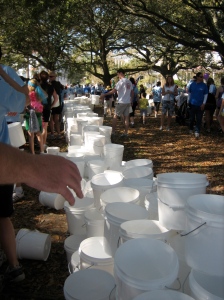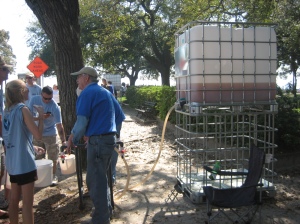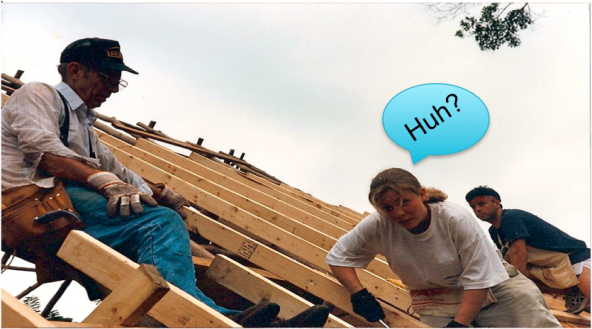 I forgot to mention in last week’s Good Samaritan post that members of the Ugandan military—toting Ak-47s—accompanied the team vans as they conducted village clinics. Apparently, the local police lacked the necessary capabilities to ensure team and crowd safety at the clinic locations.
I forgot to mention in last week’s Good Samaritan post that members of the Ugandan military—toting Ak-47s—accompanied the team vans as they conducted village clinics. Apparently, the local police lacked the necessary capabilities to ensure team and crowd safety at the clinic locations.
So, there’s no getting around it being a dangerous environment. No easy solutions here. What do you do for a woman discovered lying half-hidden in the grass on the side of a remote road in Uganda—a woman whom the locals say is crazy and quite possibly has a serious disease? The vans are completely full. Everyone’s packed shoulder-to-shoulder. (Read Part I: Good Samaritan here to catch up on the story)
Now Remember: this is a team of dental and medical personnel, physical and occupational therapists, plus other non-medical volunteers who stepped away from their normal lives (and at significant expense) to come to Uganda to help others. These are the exact opposite of lazy, uncaring people. So far that day, they’ve helped close to 1500 people, and can expect to do the same the next. These people are intrepid doers.
But this one woman on the roadside creates a unique dilemma that slices deep, spotlighting an altogether different level of personal choice…and risk.
It reminds me of the one lost sheep. The shepherd will always search out the missing one.
No one wants to leave her. Yet, allowing any of the volunteers to stay behind would leave them extremely vulnerable. Let’s face it; a group of foreigners completely new to such an area would NOT go unnoticed. I can only speculate that the leaders in the group—those responsible for the visiting team—would not like their team split apart.
Thankfully, a plan both logical and compassionate is put forth. Another local driver is hired to bring the woman back to Masindi where she can be treated. A few of the team members accompany her, and one, a lawyer from Charleston, SC, offers to pay for the transport. Sadly, a few of the locals watching the woman being wrapped in blankets and lifted up, laugh and shake their heads, as if trying to save her is a waste of time. I can only imagine what they have suffered in their lives to numb them so. Most likely, they have witnessed this and worse.
The woman has severe malaria and without the water the team gave her, she probably would have died before she could receive treatment in Masindi. A blessing of timing.
For two days she is on an IV. One of the missionaries involved with the medical initiative lets the woman stay at her house for a couple of weeks. But it soon becomes clear that the woman does have psychological issues. Not hard to fathom. She is from the Sudan where war has torn apart her country. She has no family left.
Eventually, she is moved to the capital city of Kampala and placed in a psych ward to receive help in healing wounds of a different kind.
The team could have rationalized away whatever alternate course they might’ve taken, but they placed value on each individual…and did not look at her as a ‘lost cause’.
Every person matters—whether you are on the receiving end of hope…or the one giving it. Your choices matter.
 A little about this intrepid group: Palmetto Medical Initiative provides sustainable quality healthcare while increasing access to global medical missions. After construction of the medical centers, they are staffed by locals on the ground, creating jobs in the region and giving ownership to those for whom it is intended. PMI utilizes short-term medical trips to support and gain recognition for the medical centers while they undergo construction. PMI piloted the first medical center in Masindi, Uganda and after significant success, is expanding the model of sustainable quality healthcare to Viejo, Nicaragua. Learn more and/or join a team.
A little about this intrepid group: Palmetto Medical Initiative provides sustainable quality healthcare while increasing access to global medical missions. After construction of the medical centers, they are staffed by locals on the ground, creating jobs in the region and giving ownership to those for whom it is intended. PMI utilizes short-term medical trips to support and gain recognition for the medical centers while they undergo construction. PMI piloted the first medical center in Masindi, Uganda and after significant success, is expanding the model of sustainable quality healthcare to Viejo, Nicaragua. Learn more and/or join a team.
Is overseas mission work something you’d ever consider? Short-term? Long-term? Why or why not?
 How closely have you followed the road you life-planned for yourself?
How closely have you followed the road you life-planned for yourself?













